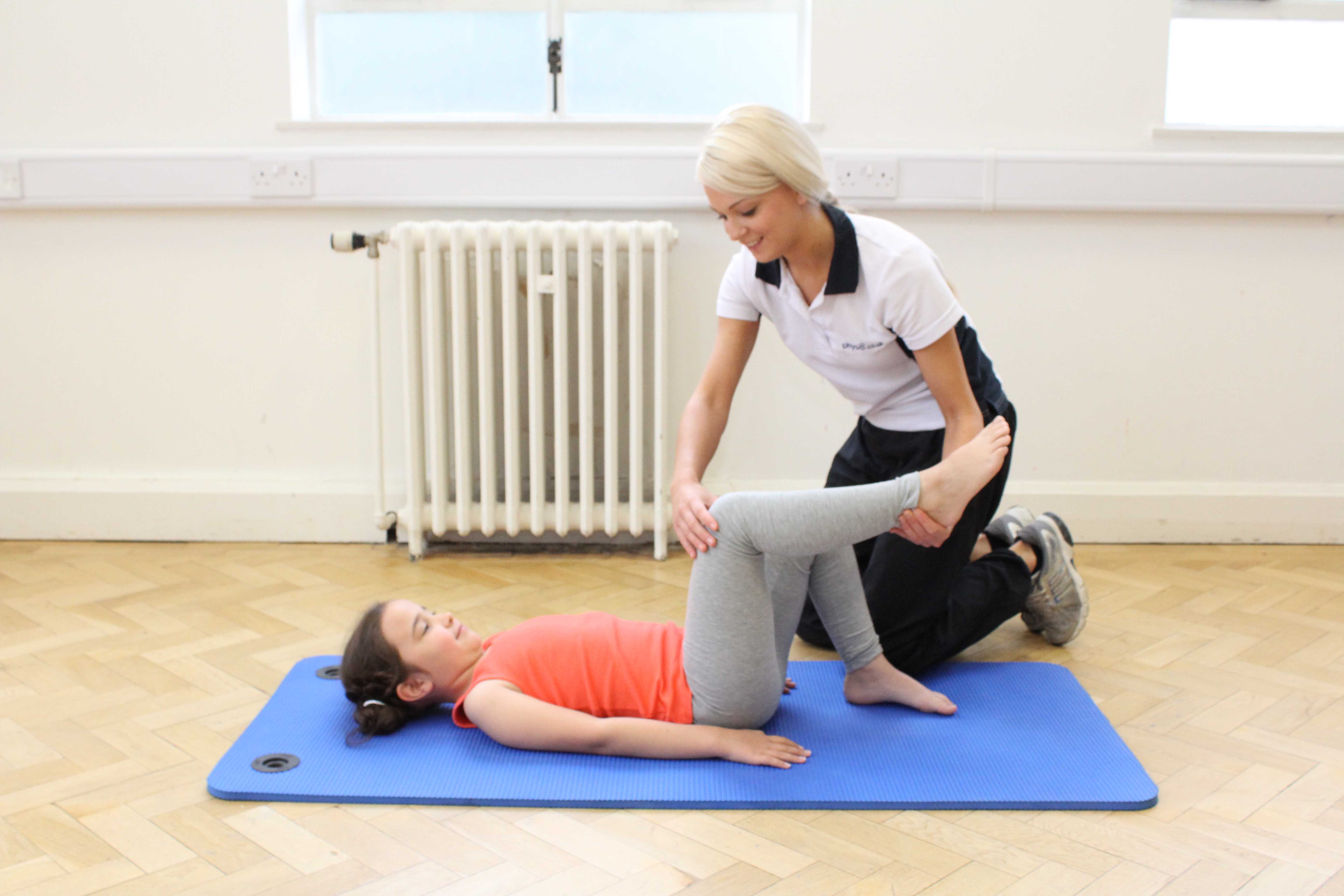What is meningitis?
Meningitis is inflammation of the membranes that surround the brain and spinal cord. Severe cases of meningitis can cause long-term damage to the brain which results in a variety of physical and cognitive deficits. Physiotherapy will minimise the symptoms and improve your child’s ability to walk and carry out normal activities of daily living.
Causes of meningitis
Meningitis is caused by a bacterial or a viral infection.
 Above: Massage and mobilisation of the knees to relieve pain and stiffness
Above: Massage and mobilisation of the knees to relieve pain and stiffnessSymptoms of meningitis
Common symptoms that children with meningitis experience are drowsiness, confusion and nausea. They often complain of a headache, neck stiffness and increased sensitivity to bright light. Children with meningitis require input form a multi-disciplinary team and significantly benefit from specialist physiotherapy services.
Diagnosis of meningitis
Meningitis is diagnosed via a blood test and a sample of fluid from your child’s spinal cord. This is obtained via a lumbar puncture which is a needle inserted into your child’s spinal column.
Treatment of meningitis
Treatment for meningitis is usually provided with the hospital setting. This may depend on the cause of your child’s meningitis. Viral meningitis is less serious than bacterial meningitis.
Physiotherapy for meningitis
After meningitis your child may be left with residual symptoms such as muscle weakness, reduced balance, co-ordination and ability to move around. They may have altered sensation and joint position sense (proprioception). Your child would significantly benefit from an assessment by a specialist physiotherapist in order to identify areas of weakness and a suitable treatment plan to improve their muscle strength and ability to move around. As well as physical deficits, your child may demonstrate unusual behaviour and changes to personality. Speaking, swallowing, vision and hearing may be also be problems that require multi-disciplinary attention. Our colleagues at Manchester Speech and Language Therapy and Manchester Occupational Therapy may be able to help with this.
Most children find that physical problems improve substantially with physiotherapy. Treatment will be dependent on the presentation of the individual. However, a general treatment plan for a child recovering from meningitis may include:
- Mobility practice and supply of relevant mobility aids
- Exercises to strengthen all limbs and trunk
- Exercises to improve balance and co-ordination
- Exercises to increase sensation and joint position sense (proprioceptive exercises)
- Stretches to maintain range of movement
- Practice of functional tasks
The benefits of physiotherapy for your child after meningitis include:
- Increased muscle strength
- Increased mobility and ability to move around
- Increased range of movement at joints
- Improved balance and co-ordination
- Improved sensation and proprioception
- Increased ability to complete functional activities
- Increased independence
- Increased confidence and quality of life
Why choose Physio.co.uk for your child
At Physio.co.uk, we understand the difficulties that your child can face recovering from meningitis. Our experienced physiotherapists can provide a high standard of evidence based treatment in clinic or your home environment. The aim of physiotherapy is to minimise the problems caused by meningitis and improve your child’s physical ability and quality of life.
- No waiting list
- Flexible appointment times
- Treatment at home or in the clinic
- Specialist, experienced physiotherapists
- Optimise your child’s recovery through play and exercise
- Individual home exercise program
- Provision of aids and equipment
- Access to occupational therapy
- Access to hydrotherapy
- Access to speech and language therapy

 0330 088 7800
0330 088 7800

































